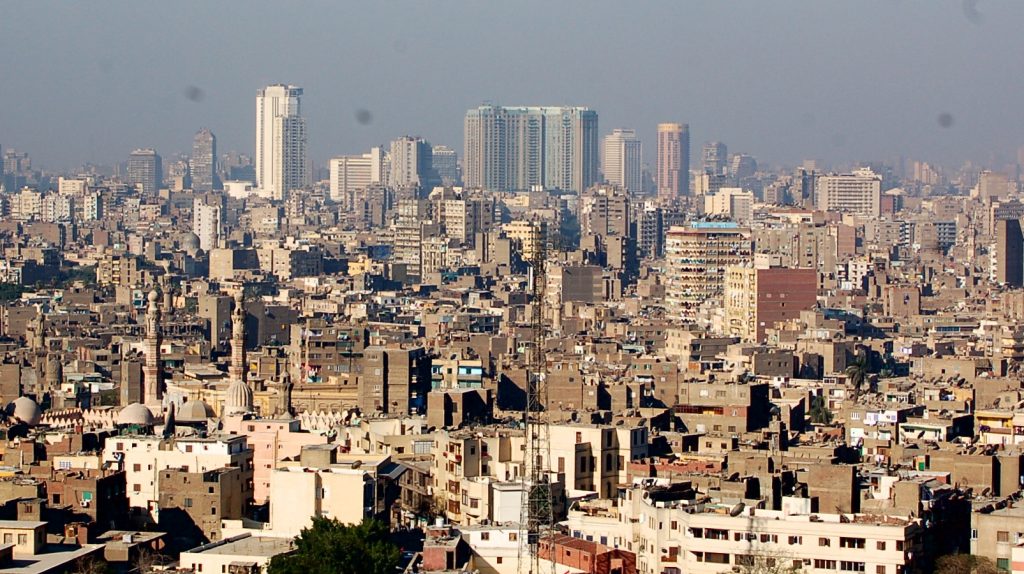In a move that signals a major leap forward in generative AI, OpenAI has quietly rolled out ChatGPT-5, its most advanced model to date….
Why the VC sector has taken off in Egypt in 2019

Earlier this week indoor advertising platform Adzily raised $12.2-million in funding from a Saudi investor in what’s likely the second biggest venture capital (VC) deal to have been announced involving an Egyptian startup in 2019.
The biggest VC deal announced so far this year involving an Egyptian startup is Swvl‘s whopping $42-million raise in June (see this story).
Other notable transactions include MaxAB‘s September $6.2-million seed round (see this story) and Almentor’s $4.5-million Series-A round (the startup’s founder and the VC that led the deal are both Egyptians, see this story).
GreenTec Capital Partners senior company builder Maxime Bayen has tracked 77 African startups that have raised over $1-million in funding so far this year.
About eight Egyptian startups have so far announced raising VC funding rounds of at least $1-million
Those from Egypt include ArabyAds ($6.5-million), Yumamia ($1.5-million), MoneyFellows ($1.5-million) and Yodawy ($1-million).
UPDATE: ❗$1BN mark reached❗
Meet the 7️⃣7️⃣ #startups in #Africa that raised $1M+ funding in 2019:📊$1.1B raised cumul. in 83 deals
📊15 (19%) (co)founded by women
📊35% are in #Fintech
📊75% funding goes to🇳🇬(55%!) 🇿🇦🇰🇪
📊168 different investorsLet me know if I missed any ! pic.twitter.com/5332ziTd0I
— Maxime Bayen (@MaxBayen) November 19, 2019
Fady Azzouny, the CEO and co-founder of on-demand pet-care startup Vetwork — which raised a six-figure seed round last week in its first VC deal (see this story) — believes it’s become easier to raise funding than three to five years ago.
“Egyptian VCs are increasing and even international VCs are looking at Egypt. Let’s say their appetite and risk willingness is increasing, due to a couple of successful exits and initial public offerings (IPOs),” he says.
In August, US online dating services provider Match Group acquired Egyptian matchmaking app Harmonica. It’s not clear how much Match Group paid to acquire the startup, or when the deal was concluded (see this story).
Reuters reported in an article published in the same month that the initial public offering (IPO) of Egyptian digital payments firm Fawry, which was founded in 2008, was oversubscribed by 30 times at a price of 6.46 Egyptian Pounds ($0.39 at the time).
Middle East and North Africa (MENA) startup intelligence platform Magnitt has recorded 120 investment deals closed by tech companies in Egypt so far this year (as of 28 November), valued at $83-million in total — up from 106 deals totalling $78-million over the same period last year.
So, what then is behind this trend?
Role of government, private sector
For Magnitt’s venture capital data and research executive, Sietse van de Kerkhof, the Egyptian government has played a key role.
He says the government has been actively looking to enhance the tech startup sector and has been involved in several initiatives like Falak Startups accelerator that aim to spur innovation.
Earlier this year the Central Bank of Egypt established a fintech regulatory sandbox as well as the $57-million Fintech Fund.
Mohamed Abdelmottaleb, the founder of fintech startup XPay which raised $250 000 in April from from Egyptian angel investors living in the UK (see this story), echoes this.
“The Egyptian government has been supporting the ecosystem recently, from the availability of funds to sponsoring startups to showcase around the world. It is more a case of showing what we have.
“Additionally, recent changes in the regulations for company formation (passed in 2018) made it a lot easier, much clearer and in line with international regulations.
“Also, the government has established a fund of funds and number of incubation programmes both independently and in collaboration with other organisations,” he says.
The private sector too has played a vital role. Van de Kerkhof points to the increasing number of accelerators in Egypt.
These include the likes of the Startupbootcamp Fintech Cairo accelerator, a joint venture with Cairo-based fintech focused venture capital firm Pride Capital.
The transport and mobility vertical, he explained, is among the biggest in the country and has been drawing larger and larger rounds.
Large, educated population, high internet use
The country’s large population — the country in 2018 had a population of 98 million according to the World Bank — is increasingly using smart phones and the internet. This, while the existence of several universities in the country, has helped provide trained staff that startups can then recruit.
For Tripdizer CEO and founder Ziad ElAdawy, whose Cairo-based traveltech startup raised a $300 000 seed round in August (see this story), the country’s high internet penetration and good education has played a key role.
“After years of turbulence, the economy of Egypt finally stabilised and growing at an impressive rate. The country has a good education system, which produces world class entrepreneurs, looking to solve the regions’ major problems and to disrupt ageing industries that were once controlled by certain families.
“The internet penetration is high, which makes it a very attractive market for tech enabled solutions. The country also has a cost advantage compared to the rest of the region,” explains ElAdawy.
Tarek El Kady, the founder and chairman of both Alexandria Angel Network and Mediterranean Business Angels Network says although the government hasn’t done anything to incentivise angels to back Egyptian startups, there are some programmes that have been launched to support angel investment that have not yet fully materialised.
“The real problem lies in the early-stage financing, where increased access to seed capital is actually very much needed,” he says.
ElAdaway echoes this. He says there is still some way to go before the sector reaches maturity. “I wouldn’t say that the ecosystem in Egypt is well established yet, but it is getting there,” he says.
None the less 2019 has been an impressive year for Egypt’s VC sector. Perhaps other African countries should take note.
Featured image: Cairo cityscape (Dan via Flickr, CC BY-SA 2.0)


